Jiqun Zhang
Chats-Grid: An Iterative Retrieval Q&A Optimization Scheme Leveraging Large Model and Retrieval Enhancement Generation in smart grid
Feb 21, 2025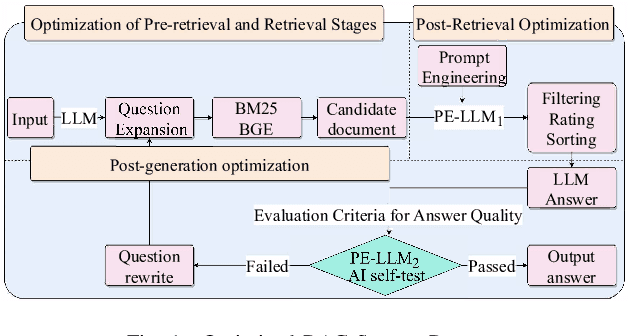
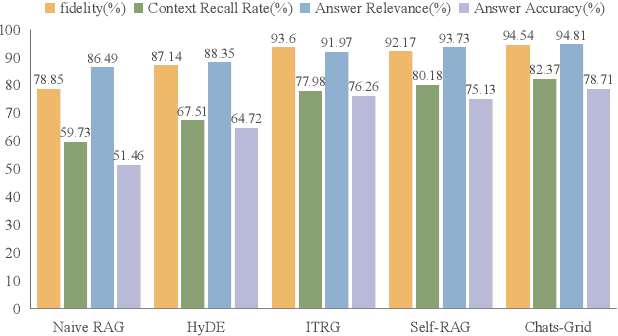
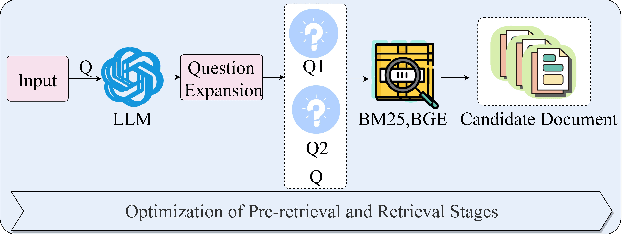
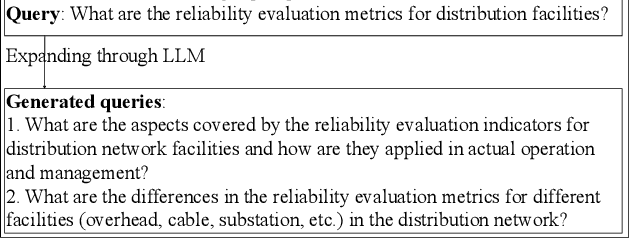
Abstract:With rapid advancements in artificial intelligence, question-answering (Q&A) systems have become essential in intelligent search engines, virtual assistants, and customer service platforms. However, in dynamic domains like smart grids, conventional retrieval-augmented generation(RAG) Q&A systems face challenges such as inadequate retrieval quality, irrelevant responses, and inefficiencies in handling large-scale, real-time data streams. This paper proposes an optimized iterative retrieval-based Q&A framework called Chats-Grid tailored for smart grid environments. In the pre-retrieval phase, Chats-Grid advanced query expansion ensures comprehensive coverage of diverse data sources, including sensor readings, meter records, and control system parameters. During retrieval, Best Matching 25(BM25) sparse retrieval and BAAI General Embedding(BGE) dense retrieval in Chats-Grid are combined to process vast, heterogeneous datasets effectively. Post-retrieval, a fine-tuned large language model uses prompt engineering to assess relevance, filter irrelevant results, and reorder documents based on contextual accuracy. The model further generates precise, context-aware answers, adhering to quality criteria and employing a self-checking mechanism for enhanced reliability. Experimental results demonstrate Chats-Grid's superiority over state-of-the-art methods in fidelity, contextual recall, relevance, and accuracy by 2.37%, 2.19%, and 3.58% respectively. This framework advances smart grid management by improving decision-making and user interactions, fostering resilient and adaptive smart grid infrastructures.
Multi-Continental Healthcare Modelling Using Blockchain-Enabled Federated Learning
Oct 23, 2024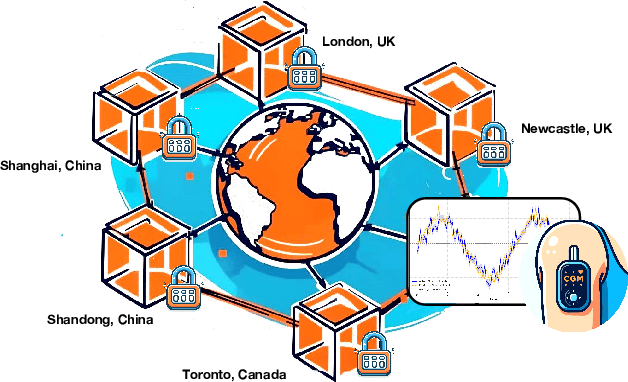
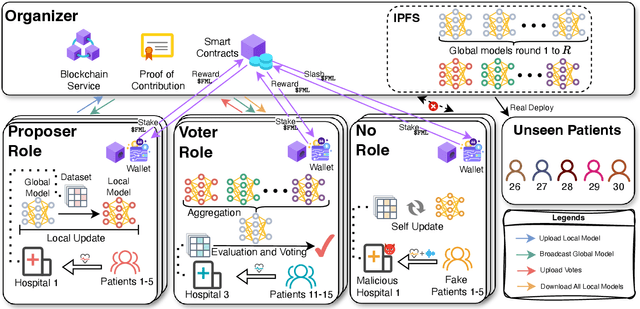


Abstract:One of the biggest challenges of building artificial intelligence (AI) model in healthcare area is the data sharing. Since healthcare data is private, sensitive, and heterogeneous, collecting sufficient data for modelling is exhausted, costly, and sometimes impossible. In this paper, we propose a framework for global healthcare modelling using datasets from multi-continents (Europe, North America and Asia) while without sharing the local datasets, and choose glucose management as a study model to verify its effectiveness. Technically, blockchain-enabled federated learning is implemented with adaption to make it meet with the privacy and safety requirements of healthcare data, meanwhile rewards honest participation and penalize malicious activities using its on-chain incentive mechanism. Experimental results show that the proposed framework is effective, efficient, and privacy preserved. Its prediction accuracy is much better than the models trained from limited personal data and is similar to, and even slightly better than, the results from a centralized dataset. This work paves the way for international collaborations on healthcare projects, where additional data is crucial for reducing bias and providing benefits to humanity.
 Add to Chrome
Add to Chrome Add to Firefox
Add to Firefox Add to Edge
Add to Edge